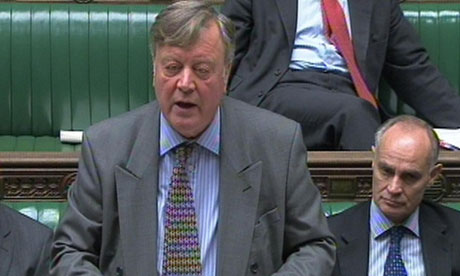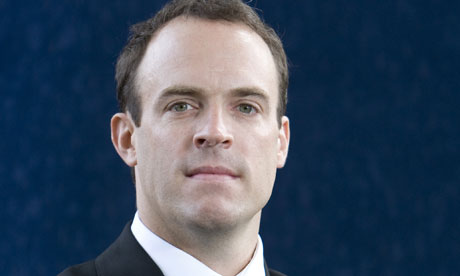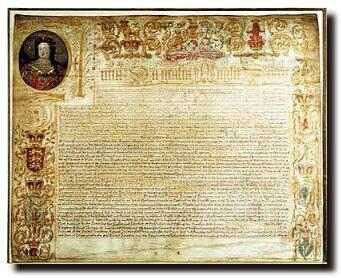There are lots of legal aid changes announced today:
http://www.justice.gov.uk/downloads/consultations/legal-aid-reform-government-response.pdf
Will review in detail at some later date -
The one which immediately struck me was this one:
Having considered the responses to the consultation questions on
alternative sources of funding, the Government has decided to introduce
a Supplementary Legal Aid Scheme, under which 25% of all damages
successfully claimed, other than damages for future care and loss, in
cases funded by legal aid will be recovered by the legal aid fund. This will
include cases funded through the exceptional funding mechanism.
So in essence the Legal Aid position will mirror the new Contingent Fee position (which was announced in March when HMG accepted Jackson LJ's proposals) - whereby instead of the Defendant paying the lawyers, then the lawyers will be paid out of damages - in both cases fixed at 25% - with a 10% rise in general damages to compensate.
So both Contingent fee funded and legally aided lawyers will have a vested interest in increasing the level of damages because damages will now equal profit for lawyers. How far we have fallen.......
Tuesday, 21 June 2011
Sentencing
The current dilemma over sentencing does not seem to come to much if analysed calmly and away from the tabloids -
Plead guilty at the earliest opportunity at the moment and 10 years might become 6. Released after 1/2 time and 10 becomes 3. Change to a 50% discount and that 3 becomes 2.5. So not reforming means an extra 6 months in jail or circa £7,000 for the tax payer?
What's the big deal?
Plead guilty at the earliest opportunity at the moment and 10 years might become 6. Released after 1/2 time and 10 becomes 3. Change to a 50% discount and that 3 becomes 2.5. So not reforming means an extra 6 months in jail or circa £7,000 for the tax payer?
What's the big deal?
Tuesday, 14 June 2011
I agree with Sir Stephen Sedley
I rarely agree with Sir Stephen Sedley (Sedley LJ retired and sadly will not grace the SCUK) but he is spot on in his recent essay in the LRB - available free here - he is writing on superinjunctions - I particularly liked his parting shot -
The naming of Goodwin and Giggs is on a different plane from ministerial briefings against judges, inappropriate as these are, because it disrupts the historic equilibrium between the judiciary and the legislature. The media may present themselves as amused spectators, but it is they who have provoked and exploited the breakdown of an element in the democracy they themselves inhabit.
The naming of Goodwin and Giggs is on a different plane from ministerial briefings against judges, inappropriate as these are, because it disrupts the historic equilibrium between the judiciary and the legislature. The media may present themselves as amused spectators, but it is they who have provoked and exploited the breakdown of an element in the democracy they themselves inhabit.
Wednesday, 8 June 2011
MP thinks that Judges legislate...
I was listening last night to the Commons debate on the second reading of the Terrorism Prevention and Investigative Measures Bill which is set to replace Control Orders with TPIMS - which are in fact more or less just like Control Orders but with a different name.
During the debate the MP named below said the following which I quote from Hansard:
8.37 pm
Control orders are not just of dwindling relevance; they constitute a distraction from robust law enforcement and are actually a negative. That is why I welcome the Home Secretary's renewed focus on the Prevent strategy. I would welcome further still measures to strengthen our deportation capacity, which has been undermined by judicial legislation resulting from article 8 of the European convention on human rights, via the Human Rights Act 1998. The massively inflated rights to family life now allow the majority of deportation orders to be frustrated. That has nothing to do with article 3 torture grounds, which I would stand up for
Have relations between Parliament and the Judges become so poisoned that this chap thinks that there really is such a thing as 'judicial legislation' in the UK which Judges make in order to actively undermine the Government's implementation of a deportation regime set out in an Act of Parliament. At least he acknowledges that this 'judicial legislation' is 'via' the HRA 1998.
Mr Raab - what you actually meant is that Parliament in 1998 compelled judges to apply article 8 of the European Court of Human Rights to the law of England and Wales, including that bit of the law which sets out when we can deport terrorists.
The application of article 8 is not judicial legislation - it is merely what judges do - are compelled to do - applying the law as made by Parliament to the facts of a case.
I am also unaware of any case where a judge has refused to deport a terrorist on article 8 grounds - this is mainly because article 8 rights to a family life can be infringed where the infringement (the deportation) is proportionate to the legitimate aim of the security of the UK. So even if the Judges have been legislating - they have 'passed' no law which means that terrorists can hide behind article 8.
True it is that terrorists can hide behind article 3 - we cannot deport them back to countries which will torture them, but then article 3 is an absolute right - I am glad that Mr Raab finds it in himself to stand up for terrorists not being tortured......
But who is going to stand up for the judges and explain to the average MP, that they, MPs, make law in a Sovereign Parliament - and Judges just apply it - if Judges interpret Acts of Parliament or introduce common law rules which MPs don't like - they (with the House of Lords) can pass an Act which better expresses the democratic will (see the Compensation Act and its overturning of a Supreme Court judgment etc.).....Mr Raab, please read a constitutional textbook before you next malign HM Judges....
Wednesday, 1 June 2011
Scots get tartans in a twist about SCUK....
The Scottish Government (as it now likes to call itself notwithstanding its statutory title) is getting all upset about the Supreme Court hearing human rights appeals in Scottish criminal cases. Article 19 of the Act of Union stated that after the Union the Scottish court system would be the same as before the Union. Before the Union in civil cases, the final court of appeal in Scotland was the independent Parliament of Scotland. There was no such right of appeal in criminal matters and the High Court of Justiciary was the final court in all Scottish criminal cases. In 1876, in the case of Mackintosh v. Lord Advocate (1876) 2 App. Cas. 41 the House of Lords (finally) decided that it did not have jurisdiction to hear a Scottish criminal appeal because whilst it had inherited the jurisdiction of the old pre-Union Scottish Parliament in civil matters, it had inherited nothing in respect of criminal matters. This has now been recognised in Westminster pre-devolution legislation which still applies - section 124(2) of the Criminal Procedure (Scotland) Act 1995.
The Scotland Act 1998 limited the legislative competence of the Scottish Parliament and the executive competence of the Scottish Ministers and the Lord Advocate in many ways, including to only legislating and acting in accordance with the Convention rights protected by HRA 1998. If complaint were made that the Parliament or the Executive had acted beyond their competence - a so called Devolution issue or minute - then the final court of appeal to determine such issues was the Judicial Committee of the Privy Council.
This body was chosen, instead of the House of Lords, precisely because it was recognised that one side wind of this new jurisdiction would be Scottish criminal cases being finally determined on human rights grounds in London. It would cause political difficulty and constitutional problems if the House of Lords were to be vested with the final constitutional power to arbitrate on devolutional issues in Scottish criminal cases where the Law Lords had hitherto had no jurisdiction. Plus the JCPC's flexible membership could be used to add Scottish Judges to the court to make it look less like English Judges deciding Scottish cases. The JCPC heard a succession of Scottish criminal human rights appeals in this manner until the foundation of the new Supreme Court.
At this stage some bright spark had the brilliant idea to transfer the JCPC's devolution jurisdiction to the Supreme Court. And this is where the error leading to the current complaints from Scotland occurred. We now have the position of a Court which inherited its jurisdiction from the House of Lords hearing cases which the House of Lords could not have heard - because of the historical and political sensitivity. The Schedule 6 devolution minute/issue jurisdiction should have remained with the JCPC in order to preserve the nicecities (and to have allowed more Scottish Judges to have sat on cases - see Lord Kirkwood sitting with Lords Hope and Clyde in the JCPC in 2000 in this case).
The JCPC and Supreme Court usually use the same judges - but the JCPC's position outside the hierarchy of the English Legal System, allows it to be presented as less of an affront to Scotland's ancient independent legal system. Such presentational issues matter and indeed the recent decision by the SCUK in Fraser has shown how upset the Scots can get when presentationally it looks like an English Court is usurping independence of the Scots judiciary (notwithstanding Lord Hope's and Lord Roger's (and indeed Lord Kerr's) presence on the Court which decided Fraser). The jurisdiction should have stayed with the JCPC, I suspect it is now too late to turn back the clock.....
The main point is that our current constitutional arrangements are an absolute historical and asymmetrical mess and the sooner we have a written and rational Constitution - the better....
The Scotland Act 1998 limited the legislative competence of the Scottish Parliament and the executive competence of the Scottish Ministers and the Lord Advocate in many ways, including to only legislating and acting in accordance with the Convention rights protected by HRA 1998. If complaint were made that the Parliament or the Executive had acted beyond their competence - a so called Devolution issue or minute - then the final court of appeal to determine such issues was the Judicial Committee of the Privy Council.
This body was chosen, instead of the House of Lords, precisely because it was recognised that one side wind of this new jurisdiction would be Scottish criminal cases being finally determined on human rights grounds in London. It would cause political difficulty and constitutional problems if the House of Lords were to be vested with the final constitutional power to arbitrate on devolutional issues in Scottish criminal cases where the Law Lords had hitherto had no jurisdiction. Plus the JCPC's flexible membership could be used to add Scottish Judges to the court to make it look less like English Judges deciding Scottish cases. The JCPC heard a succession of Scottish criminal human rights appeals in this manner until the foundation of the new Supreme Court.
At this stage some bright spark had the brilliant idea to transfer the JCPC's devolution jurisdiction to the Supreme Court. And this is where the error leading to the current complaints from Scotland occurred. We now have the position of a Court which inherited its jurisdiction from the House of Lords hearing cases which the House of Lords could not have heard - because of the historical and political sensitivity. The Schedule 6 devolution minute/issue jurisdiction should have remained with the JCPC in order to preserve the nicecities (and to have allowed more Scottish Judges to have sat on cases - see Lord Kirkwood sitting with Lords Hope and Clyde in the JCPC in 2000 in this case).
The JCPC and Supreme Court usually use the same judges - but the JCPC's position outside the hierarchy of the English Legal System, allows it to be presented as less of an affront to Scotland's ancient independent legal system. Such presentational issues matter and indeed the recent decision by the SCUK in Fraser has shown how upset the Scots can get when presentationally it looks like an English Court is usurping independence of the Scots judiciary (notwithstanding Lord Hope's and Lord Roger's (and indeed Lord Kerr's) presence on the Court which decided Fraser). The jurisdiction should have stayed with the JCPC, I suspect it is now too late to turn back the clock.....
The main point is that our current constitutional arrangements are an absolute historical and asymmetrical mess and the sooner we have a written and rational Constitution - the better....
Subscribe to:
Comments (Atom)



